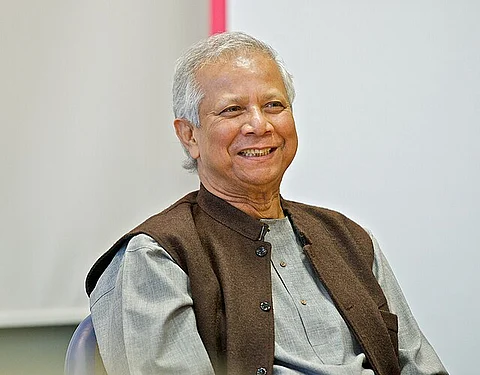

Interim leader Muhammad Yunus announced parliamentary elections for February 2026, shifting from an April timeline to precede Ramadan. In a televised address marking the first anniversary of Prime Minister Sheikh Hasina’s ouster, Yunus confirmed he would formally request the Election Commission to organize the vote, pledging a "free, peaceful, and celebratory" process for 170 million citizens. The Nobel laureate vowed to step down post-election, transferring power to an elected government tasked with building a "New Bangladesh".
Yunus unveiled the "July Declaration" during rain-soaked ceremonies outside parliament, flanked by leaders of the Bangladesh Nationalist Party (BNP), Jamaat-e-Islami, and the student-formed National Citizen Party. The 26-point document, slated for constitutional inclusion condemned Hasina’s "fascist, mafia state" and honored 300+ protesters killed in the 2024 uprising as "national heroes." It mandates democratic reforms, rule of law, and justice for regime atrocities.
The election timeline follows sustained pressure from major parties, including the BNP, which demanded polls before Ramadan. Yunus acknowledged the Gen Z-led revolt that began in July 2024 against civil service quotas and morphed into nationwide anti-authoritarian protests. Hasina’s crackdown, involving internet blackouts, mass arrests, and lethal force culminated in her helicopter escape to India on August 5, 2024, after crowds stormed her residence.
Critics highlight unresolved tensions including the HRW, which notes unfulfilled promises, citing ongoing detentions and hardliner influence. Another key problem is Hasina’s defiance. From exile, Hasina denies resigning, calling her ouster a "coup," while facing in-absentia trials for crimes against humanity. Yunus urged unity against "autocratic conspiracies," but with Ramadan starting February 17–18, 2026, logistical hurdles and political fragmentation threaten the fragile transition.